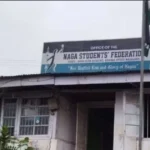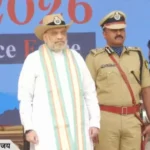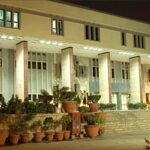The Supreme Court of India has disposed of a plea seeking directions to the Centre and the states of Nagaland and Manipur to take appropriate steps to safeguard the freedom of movement of people belonging to the Mao tribe along National Highway number two in southern Nagaland. The plea was disposed of after it was informed that the problem has been resolved.
Solicitor General Tushar Mehta informed a bench headed by Chief Justice D Y Chandrachud that the Ministry of Home Affairs had interacted with the state government and now their movement was not hindered. He also informed the bench, comprising Justices P S Narasimha and J B Pardiwala, about the instructions received from the Director (North-East division) of the MHA.
The plea was filed by the Mao Indigenous People’s Association, seeking protection for the Mao tribe’s freedom of movement along National Highway 2, which connects Manipur to Nagaland. The association had alleged that members of the Mao tribe were being stopped by Naga armed groups and harassed while travelling on the highway.
The association had also claimed that the state governments of Nagaland and Manipur were not taking adequate measures to safeguard the Mao tribe’s rights and protect them from such harassment. The plea sought directions from the court to the Centre and the two state governments to take appropriate steps to ensure the Mao tribe’s freedom of movement along the highway.
The Supreme Court had issued notice to the Centre and the two state governments on the plea in February this year. The court had directed the Solicitor General to file an affidavit on behalf of the Centre with regard to the steps taken by it to ensure the Mao tribe’s freedom of movement along the highway.
In its response, the Centre had informed the court that it had taken up the matter with the state governments of Nagaland and Manipur and had asked them to take necessary action to ensure the Mao tribe’s freedom of movement along the highway.
The court had then directed the Solicitor General to apprise it of the steps taken by the Centre and the two state governments to resolve the issue. On Thursday, the Solicitor General informed the court that the problem had been resolved and the Mao tribe’s freedom of movement was no longer hindered.
The Supreme Court, after taking note of the submission, disposed of the plea. The court’s decision is likely to bring relief to the members of the Mao tribe who were facing harassment and restriction on their movement along National Highway 2.
The Mao tribe is one of the indigenous communities of Manipur and Nagaland, and they have been living in the region for centuries. The tribe has been demanding the recognition of their distinct identity and protection of their land and resources.
The Supreme Court’s decision to dispose of the plea is a positive step towards safeguarding the rights of indigenous communities in India. The court’s intervention in this case highlights the importance of protecting the freedom of movement and other basic rights of tribal communities in the country.









